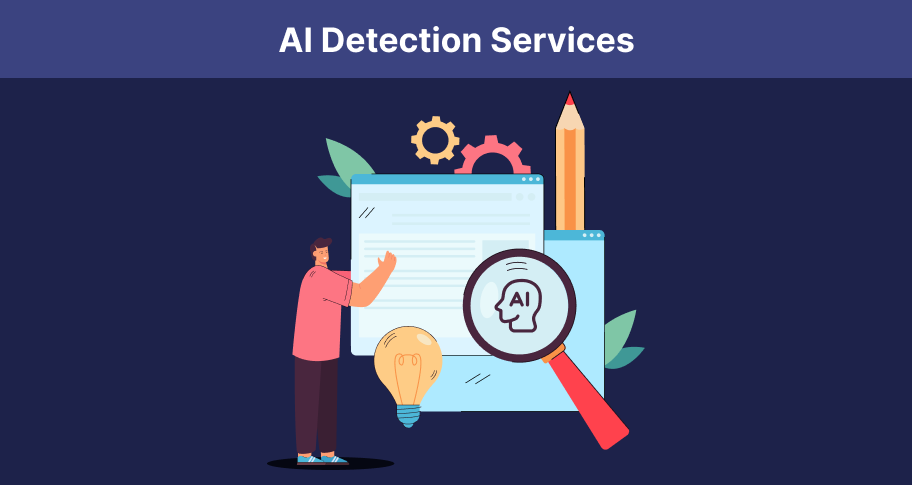Introduction
Everybody at some point or another has to do a little persuading. Maybe it’s at your job, as you try to convince your boss that you deserve a raise. Maybe it’s at school, because giving speeches is part of passing your communications course. Maybe it’s in front of your community, as you try to lead them in the right direction. Maybe it’s in front of a parent as you try to convince them you deserve that loan to start up your dream business. No matter the situation, the art of persuasion is something one is likely to use in life. So, here’s our tutorial on how to write an amazing persuasive speech.
What is a Persuasive Speech?
A persuasive speech is any type of talk in which your objective is to convince the audience to adopt your point of view. It might require them to know certain facts, change their perspective, accept new beliefs, or take some fundamentally new action. But ultimately it is your words, your tone, your voice, your ideas, and the way you communicate them that will change the mind of your audience.
For that reason, persuasive speakers rely on ethos (logic), emotions (pathos), and authority (logos) to capture the minds and hearts of their audiences. Let’s look at a few outline examples to show how it works.
Persuasive Speech Outline Examples
Outline Example #1: The Case for School Uniforms
I. Introduction
A. Get your hooks out: Start with a thought-provoking question or statement (e.g., “Did you know that school uniforms can actually contribute to a more focused and disciplined learning environment?”)
B. Present your Thesis Statement—by clearly stating your position (e.g., “Implementing school uniforms is a good policy for students, educators, and parents alike.”)
C. Establish Credibility: Briefly mention your research or personal experience with school environments.
II. Body
A. Point 1: Uniforms promote equality and reduce bullying
1. Explain how uniforms can eliminate economic and social barriers among students.
2. Present statistics or studies linking uniforms to reduced bullying incidents.
B. Point 2: Better Focus on Education
1. Argue how uniforms shift the emphasis from fashion to learning.
2. Discuss how a uniform policy can reduce distractions in the classroom.
C. Point 3: Practical Benefits
1. Outline the cost-effectiveness of uniforms compared to regular clothing.
2. Highlight the convenience for parents and students in daily routines.
D. Point 4: Improves School Spirit and Discipline
1. Explain how uniforms promote a sense of belonging and school identity.
2. Link uniform policies to improved discipline and respect for school rules.
III. Counterarguments
A. Address potential arguments against school uniforms (e.g., freedom of expression, discomfort).
B. Respectfully refute these arguments with evidence and examples.
IV. Conclusion
A. Restate Thesis: Emphasize the overall benefits of school uniforms.
B. Call to Action: Encourage the audience to support or consider the implementation of a school uniform policy.
C. Closing Remarks: Conclude with a powerful statement or a vision of a united, focused, and fair school culture supported by school uniforms.
View 120,000+ High Quality Essay Examples
Learn-by-example to improve your academic writing
Outline Example #2: Persuasive Speech on Implementing a Four-Day Workweek
I. Introduction
A. Throw out a hook: Pose a thought-provoking question (e.g., “Imagine gaining an extra day every week – how would you use it?”)
B. Thesis Statement: This is your position (e.g., “Adopting a four-day workweek can lead to increased productivity and improved work-life balance.”)
C. Credibility: Briefly explain your research or experience with the topic.
II. Body
A. Point 1: Increased Productivity
1. Present research showing productivity boosts in shorter workweeks.
2. Use case studies or examples from companies that have succeeded with this policy.
B. Point 2: Benefits to Employee Well-being
1. Discuss mental and physical health benefits.
2. Talk about improved work-life balance.
C. Point 3: Economic and Environmental Advantages
1. Explain potential economic benefits for businesses.
2. Point out the environmental impacts due to reduced commuting.
III. Counterarguments
A. Address potential concerns (e.g., coverage issues, workload management).
B. Offer solutions and examples to counter these concerns.
IV. Conclusion
A. Restate Thesis: Reinforce the benefits of a four-day workweek.
B. Call to Action: Encourage businesses or policymakers to consider pilot programs.
C. Closing Remark: End with a compelling statement or vision of what the future would be like with a four-day workweek.

Persuasive Speech Topics
Easy Topics
- The importance of recycling in our community.
- Why everyone should adopt an animal from an animal shelter.
- The benefits of daily exercise.
- Why everyone should read one book a week for a whole year.
- Why we should plant more trees.
- The advantages of learning a second language.
- The importance of doing something about the homeless problem.
Good Topics
- The role of renewable energy for a sustainable future.
- The negative impact of social media on mental health.
- A good work-life balance is key to a happy home life.
- The benefits of homesteading.
- The benefits of character education.
- The effects of fast food on health.
- The importance of preserving historical monuments.
College Topics
- The necessity of financial literacy for college students.
- The impact of student loan debt on young adults.
- The benefits of studying abroad.
- The importance of internships for career development.
- Bring back Shakespeare: the need for more humanities education in college.
- Why technical colleges deserve more attention from students.
- Why student athletes should be paid.
Funny Topics
- Why being lazy can actually be productive.
- The art of mastering the skill of getting out of bed.
- You are more intelligent than your pet and don’t you forget it!
- The benefits of being a procrastinator.
- Why it is good to be bad when you’re a rock star.
- Why the Kardashians should have their own Mt. Rushmore.
- Why mandatory prison time should be served by everyone.
Teen Topics
- Resolving the “identity vs. role confusion” conflict: The importance of self-esteem in adolescence.
- Families need to be there for their teens: The negative impact of peer pressure on teenagers and what families can do about it.
- Too much social media is shaping teen identity and that is not good.
- The importance of setting goals as a teenager.
- Teens need to develop grit if they are going to make it as adults.
- Teens need positive role models and mentors in their lives.
- Why teens should play sports.
Best Topics
- Which is better—home schooling or public schooling?
- The importance of preserving the environment for future generations.
- Globalization is bad for local cultures and the local job market.
- The ethics of artificial intelligence and its future implications.
- Why Plato was right: Start healing the body by healing the soul.
- No more foreign wars: Bring back isolationism.
- The role of leadership in personal and professional success.
High School Topics
- The importance of participating in extracurricular activities.
- The need for greater emphasis on developing critical thinking skills.
- The important benefits of a balanced diet and adequate sleep for high school students.
- High school should be replaced with trade school.
- The benefits of positive teacher-student relationships.
- Why standardized testing should be abolished.
- Should high school be mandatory?
Controversial Topics
- The debate over gun control laws.
- Should Derek Chauvin be in jail?
- The legalization of marijuana.
- The implications of surveillance technology on privacy.
- Is Julian Assange a threat to our security or to the entrenched powers of the deep state?
- Did we really land on the moon?
- The role of censorship in modern media.
How to Write a Persuasive Speech (3 steps)
Step 1: Identify Argument and Audience
Identify your argument and your audience. Your argument should be tailored to meet the needs or demands of the audience. After all, this speech is for a specific, intended audience. This audience is the one whom you’re trying to persuade.
So, you need to know the mind of your audience. You need to be able to think of what they’re objections might be, and shape your speech so that it answers their objections before they can make them. If your audience has no reason to believe in your credibility, make sure you establish it up front so that you can remove all doubt from the get-go.
All of this needs to be considered as you make your main argument, which should be simple, clear, effective, concise, and fundamental to your whole speech. Knowing the values, beliefs, ideals, and attitudes of your audience will help you craft your speech accordingly. The message is for them—make it hit the mark.
Step 2: Get Audience’s Attention
Get the audience’s attention quickly, and keep it, by structuring your speech in the most effective way possible. This is done by organizing it logically into parts that support the overall message at the start.
To start, use a hook—a compelling fact or anecdote or question that will pique the audience’s interest. From there, you can roll out your topic and describe your main argument. This opens the door to the body of your speech.
The body or bulk of the speech is where you provide support with persuasive evidence: facts, figures, statistics, charts, graphs (if visual aids are permitted), testimony from others, relevant examples—anything and everything that would help an honest critical thinker to realize that what you’re saying makes sense and that your point of view is the right one.
If there is room for counter-arguments, state them and address them so that they aren’t left hanging over the topic like daggers. Clear them out. Leave no doubt in the mind of your audience. Show them that you’ve done your homework and have thought of all possible appeals and objections. Refute the counter-arguments and win the audience. Conclude with a return to your main message or argument and call to action or impression that will stick with them.
Step 3: Win Audience Over
To win your audience over, use the power of persuasive techniques, such as rhetorical devices and appeals to logic, feelings, and ethics. Rhetorical devices include metaphors, similes and analogies—they help bring your speech to life by creating vivid images and compelling meanings in the mind of your audience. You can also balance your logical arguments with a bit of the feels to reach the audience on multiple levels. After all, we’re not all brain nor all heart but a good mix of both, so speak to both in your address. Finally, you can appeal to the ethics of the situation, too, which helps to establish your credibility and authority.
Once you’ve written out your speech or thought out your address, practice your delivery. Establish the right tone, when to use pauses, and which parts to emphasize over others.

Persuasive Speech Examples
Persuasive Speech Example #1: The Case for a Well-Deserved Raise
Boss, I stand before you today with a sense of pride and purpose. Over the past year, my time with the company has been both transformative. I have grown and so, too, has the company. Because of my contributions and our combined growth, I am here to discuss a topic of mutual interest – my request for a salary raise.
First off, let’s look at the tangible achievements. Since taking on my role, I have consistently exceeded our key performance indicators. My sales figures have increased 30%, quarter over quarter, which has directly led to the growth and success of our department. Moreover, I have led our team through the recent project, which was not only completed ahead of schedule but which also received commendable feedback from our clients. These accomplishments are not just numbers; they are a testament to my dedication and the value I bring to our team.
Beyond these measurable successes, I have strived to be a pillar of support and innovation within our team. My commitment to continuous learning and being flexible has helped us discover more efficient processes. I have also taken the initiative to mentor new team members, demonstrating a truly a collaborative leadership style.
I understand that salary decisions are not easy and usually involve considering the company’s budget and policies. So, let me make this easy for you. Either give me a raise, or I’m taking the offer that our competitor has put on the table, which, as it stands, represents a 15% increase in salary.
In conclusion, I respectfully request that my salary be reviewed to reflect the hard work, dedication, and tangible results I have delivered. I am committed to our shared goals and am eager to continue contributing to this company’s success. Thank you for considering my request, and I am open to discussing this further at your convenience.
Persuasive Speech Example #2: George Washington: The Epitome of Presidential Greatness
Ladies and Gentlemen,
Today, I stand before you to speak about a man whose legacy sits at the foundation stones of our great nation – I am talking about George Washington. Often referred to as the “Father of His Country,” Washington’s contributions go far beyond the battlefield; his presidency set the precedents and standards that have defined the American presidency to this day. I firmly believe that George Washington was not just a founding father, but in fact the greatest president in American history. And I believe that by the end of this speech, you will hold the same view.
The first thing to know is that the birth of our nation owes a great debt to Washington’s leadership during the Revolutionary War. His resilience and strategic thinking helped turn the tide in a war that seemed unwinnable. He led a basically untrained army to victory against the might of the British Empire. Yet, it was his actions after the war that truly marked his greatness. He could have seized absolute power, like a Roman general back in the day—but, instead, Washington chose to resign his commission and demonstrate a level of humility that was virtually unheard of in an era of monarchs and emperors.
As our first president, Washington established the framework for what a president should be. He set up the cabinet system, upheld the rule of law, and set a two-term precedent. He could have run and won again and again, but he did not want to show himself as an autocratic ruler. His foresight in these actions helped to shape the executive branch and preserve the balance of power that we have today.
On top of all this, there is Washington’s farewell address which was a glorious thing in and of itself. But it is also a blueprint for American values and what our foreign policy should be. His warnings against permanent alliances and political factions highlight his profound understanding of the threats to a democratic Republic.
All in all, George Washington’s leadership, his commitment to the values of the Republic, and his visionary foresight are what make him the greatest president in American history. His legacy is and will always be a guiding light for our nation.
Persuasive Speech Example #3: Embracing the Carnivore Diet: A Path to Revitalized Health
In a world brimming with dietary advice and countless nutrition philosophies, I am here to discuss a dietary approach that may seem unconventional at first glance. Yet, it holds remarkable potential for health and wellness. I am talking, of course, about the carnivore diet. This diet consists of eating animal products only. In doing so it is a return to a simpler, perhaps more natural way of eating, and I believe it’s worth your consideration.
One thing to consider is the striking benefit of the carnivore diet: its simplicity. In an era where we are constantly bombarded with complex diet plans and conflicting nutritional advice, the carnivore diet offers a straightforward approach. It eliminates the guesswork involved in balancing different food groups, making it an easy-to-follow regimen for those overwhelmed by traditional diets.
Moreover, the diet is rich in essential nutrients. Animal products are packed with high-quality protein, essential fats, vitamins, and minerals. These nutrients are crucial for muscle growth, brain function, and overall health. Unlike plant-based sources, the nutrients in animal products are more readily absorbed by the body, ensuring that you’re getting the maximum benefit from your meals.
Many adherents to the carnivore diet report significant health improvements, including enhanced energy levels, better digestion, less bloating, fewer headaches, and improved mental clarity. These stories are also backed by emerging scientific research, which suggests that the carnivore diet can lead to a healthier life.
Added to this is the fact that, for those struggling with food sensitivities, the carnivore diet can be a game-changer. Eliminating potential allergens and irritants found in plant-based foods can help many people find relief from issues they probably didn’t even know they could solve.
In conclusion, it may not be for everyone, but the carnivore diet offers a unique and simplified approach to eating that can help improve your health. I encourage you to explore this diet, both for its nourishment and as a potential key to unlocking a more energetic, healthier version of yourself.
Conclusion
This tutorial has gone over the art and science of how to craft an amazing persuasive speech. We have explored various facets of persuasive speech writing. Each example we offered has shown how to use persuasive speeches most effectively. One key takeaway is to understand your audience. Another is to present your arguments clearly and logically, while also appealing to emotions and showing your credibility. Remember, the effectiveness of a persuasive speech lies not just in the strength of your arguments, but also in your ability to connect with your audience and present your ideas in a way that speaks both to the head and to heart.
In closing, whether you are persuading, informing, or inspiring your audience, the power of a well-crafted speech is undeniable. It can move people, influence opinions, change the course of history, and more. So be sure to harness this power wisely, and you will not only become an effective communicator but also a catalyst for change!





